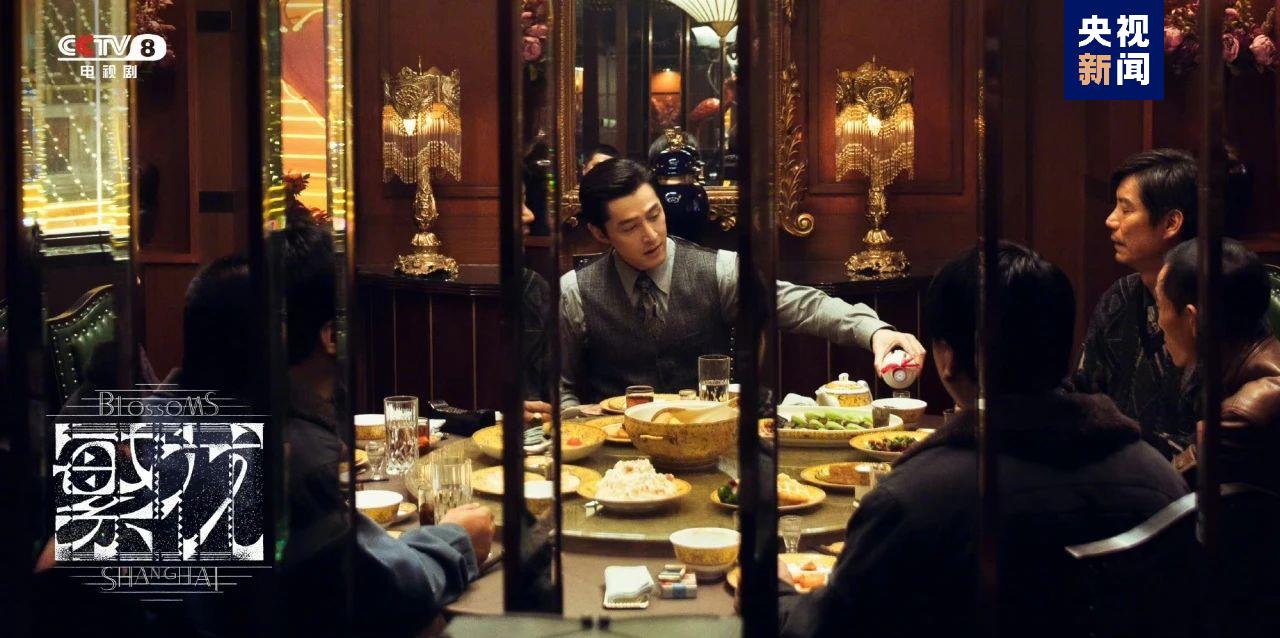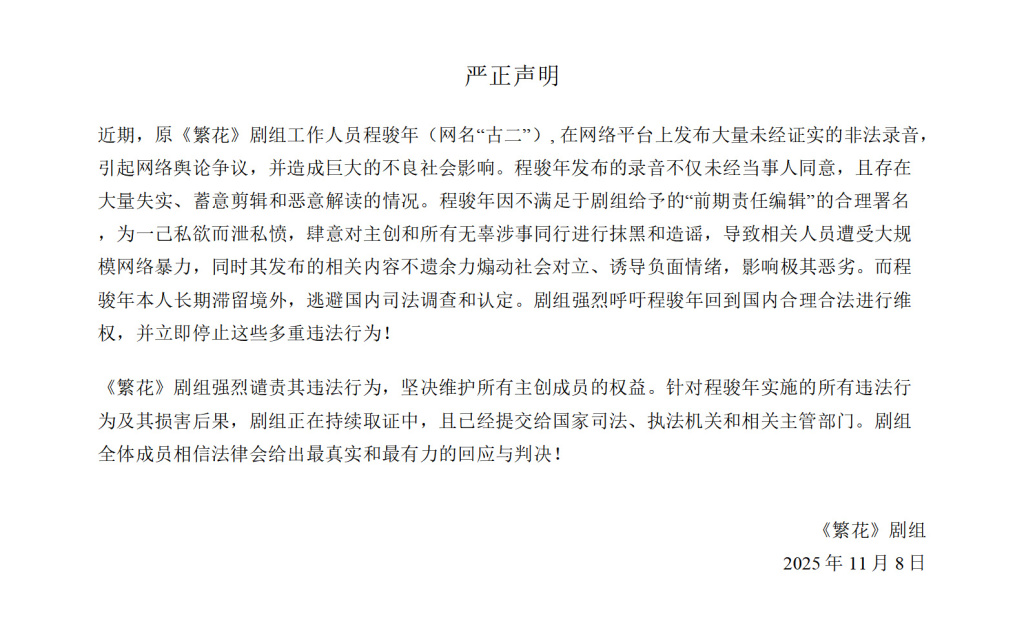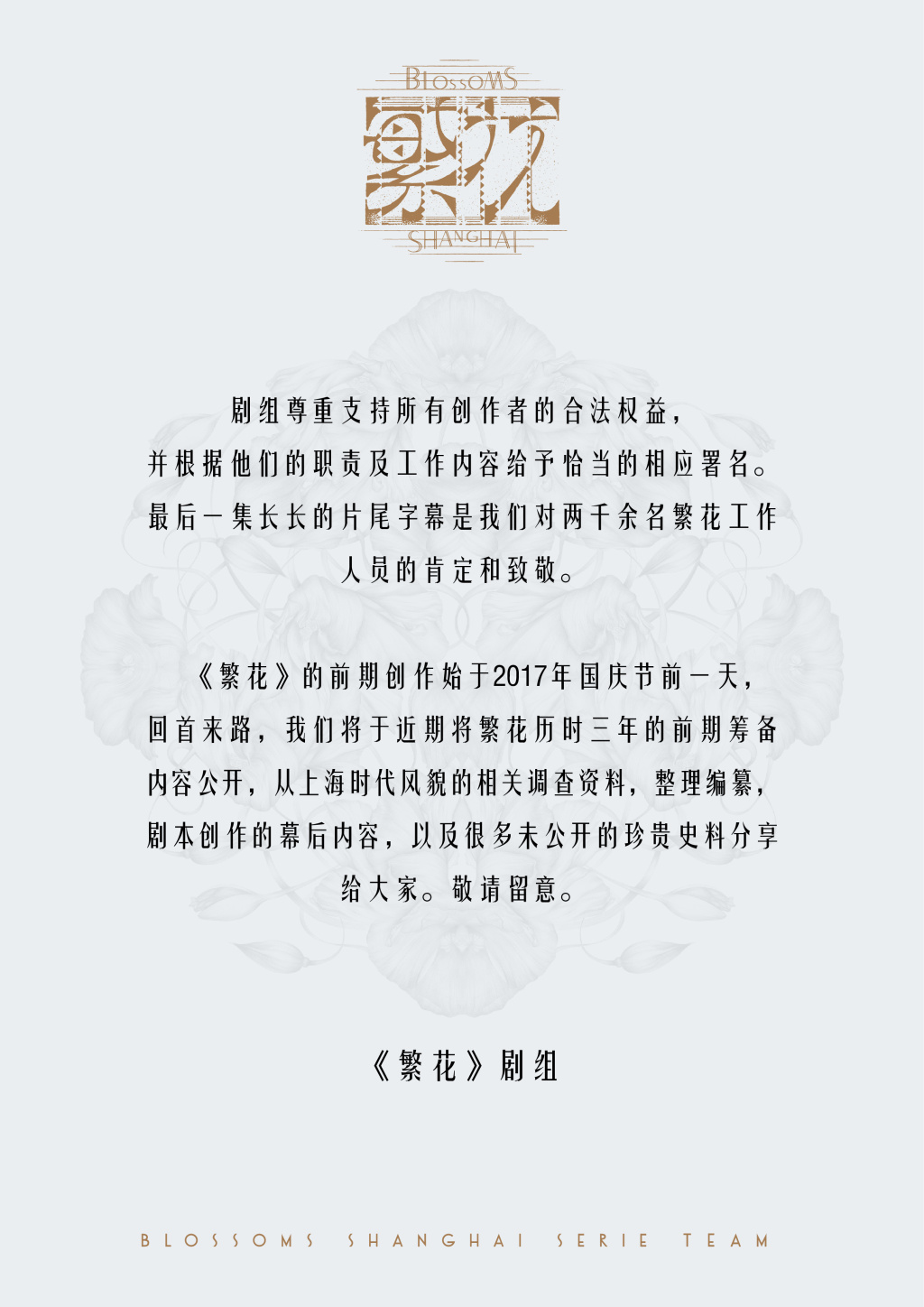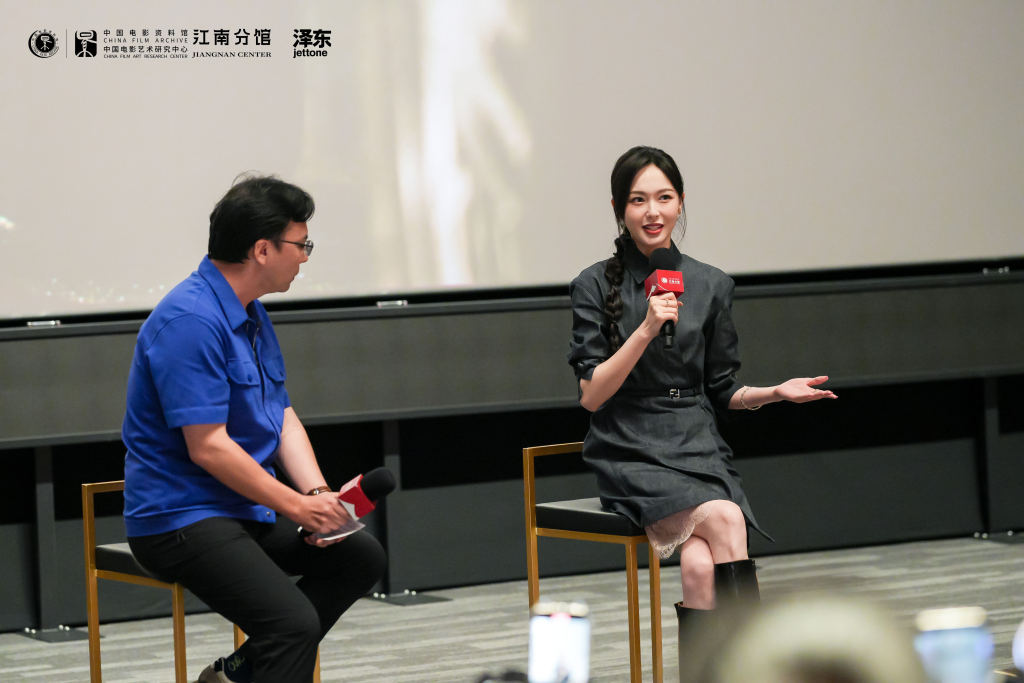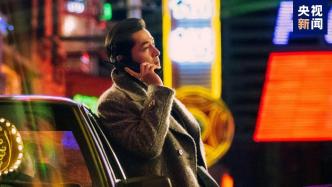
The new year's drama "Flowers", which is being aired on CCTV TV Drama Channel (CCTV-8), has seen rising ratings and aroused heated discussions among viewers.
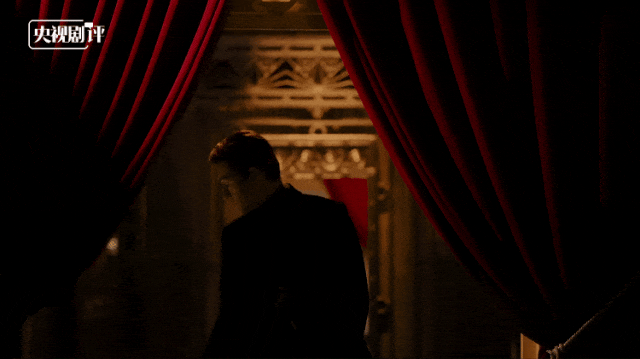
"Tone" is not only a line that appears frequently in the play, but also the label of the TV series "Flowers".
The Shanghai accent, Abao accent, and the female accents of Lingzi and others jointly create this "accented" TV series.
The "accent" cannot be explained clearly. It is a demeanor that is neither humble nor arrogant, a quiet dignity, perhaps a friendship that is neither far nor close, a reasonable and affectionate attitude, and a temperament that is outstanding, arrogant but not coquettish.
All of this is reflected not only in the characters and themes of "Flowers", but also in the atmosphere of Shanghai in the play. It also embodies a unique charm of the TV series. Many viewers commented that they seemed to be immersed in the drama after watching the show. In an atmosphere and mood that is both strange and friendly, immersed in the Shanghai accent and contemporary accent of the early 1990s created by Wong Kar-wai...
Abao accent
Do it with sincerity and take it in the right way
The protagonist Abao in the play is most praised by people as the "Mr. Bao" with the most "accent" on Shanghai's Yellow River Road.
Smart, courageous, sharp, hard yet soft, quiet yet dynamic, sentimental and multi-faceted, and true to his word. Because of this rare tone, he has become the person whom relatives and friends, men, women and children trust and get close to, and who can even go through fire and water for him. .
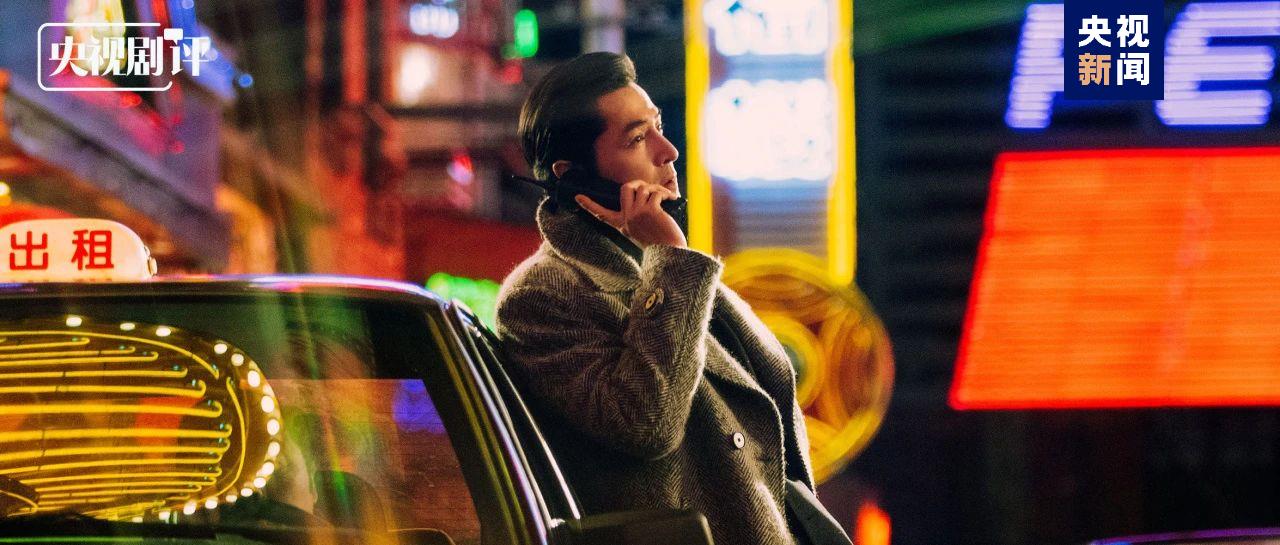
The existence of Abao determines the sunny tone of the whole drama and also establishes the legendary and romantic nature of the drama.
Abao drives the fate and emotions of people around him.
He shared the joys and sorrows with Lingzi, he and Miss Wang had a sudden romance, he and Li Li cherished each other...
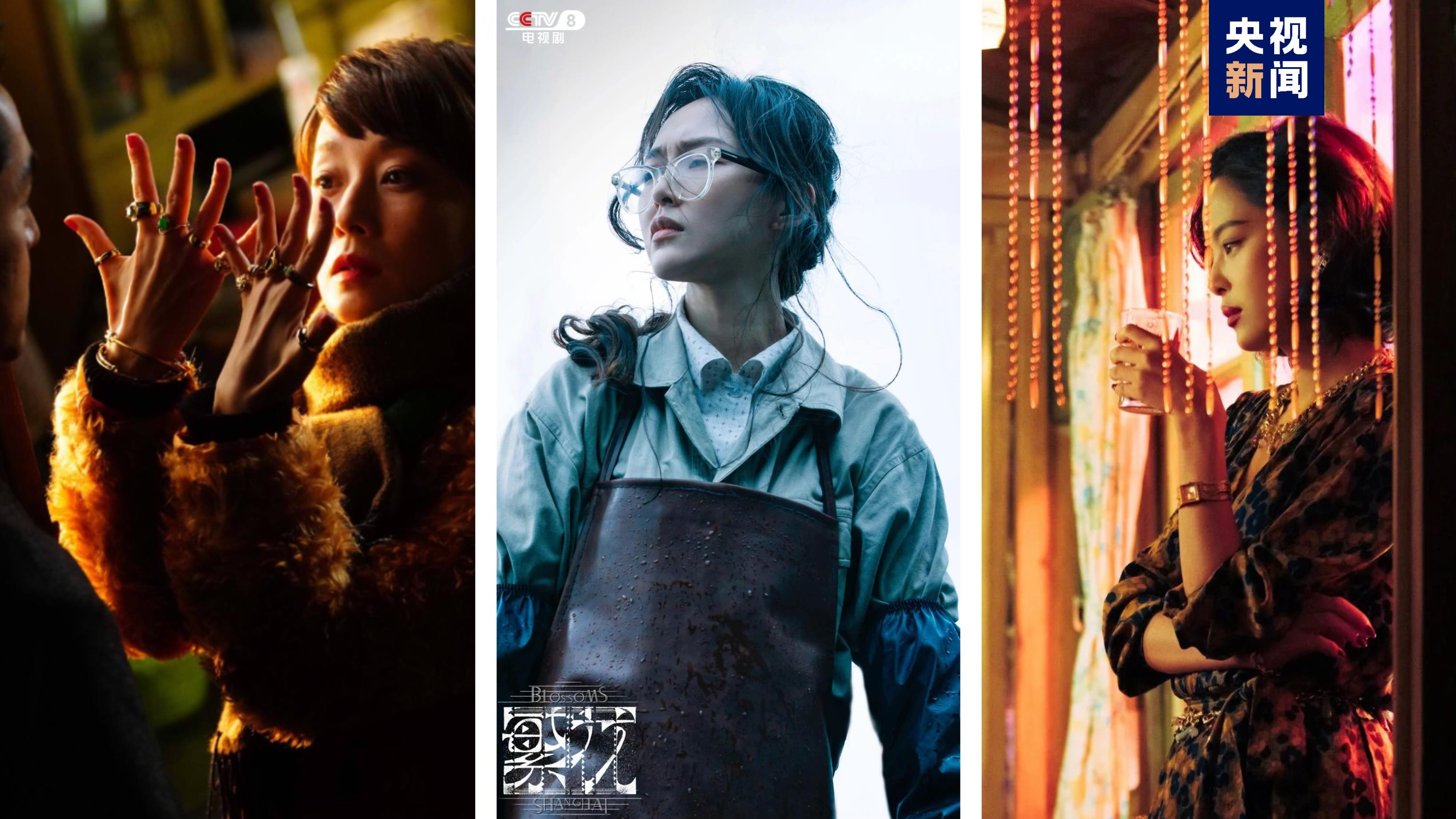
Each relationship is "happy but not obscene, sad but not sad". There are lingering feelings of being close to each other and sighs of being far apart.
Even the master-disciple relationship between him and his uncle, the old master, and the brotherly relationship between him and Tao Tao and many other friends are sincere and sincere.
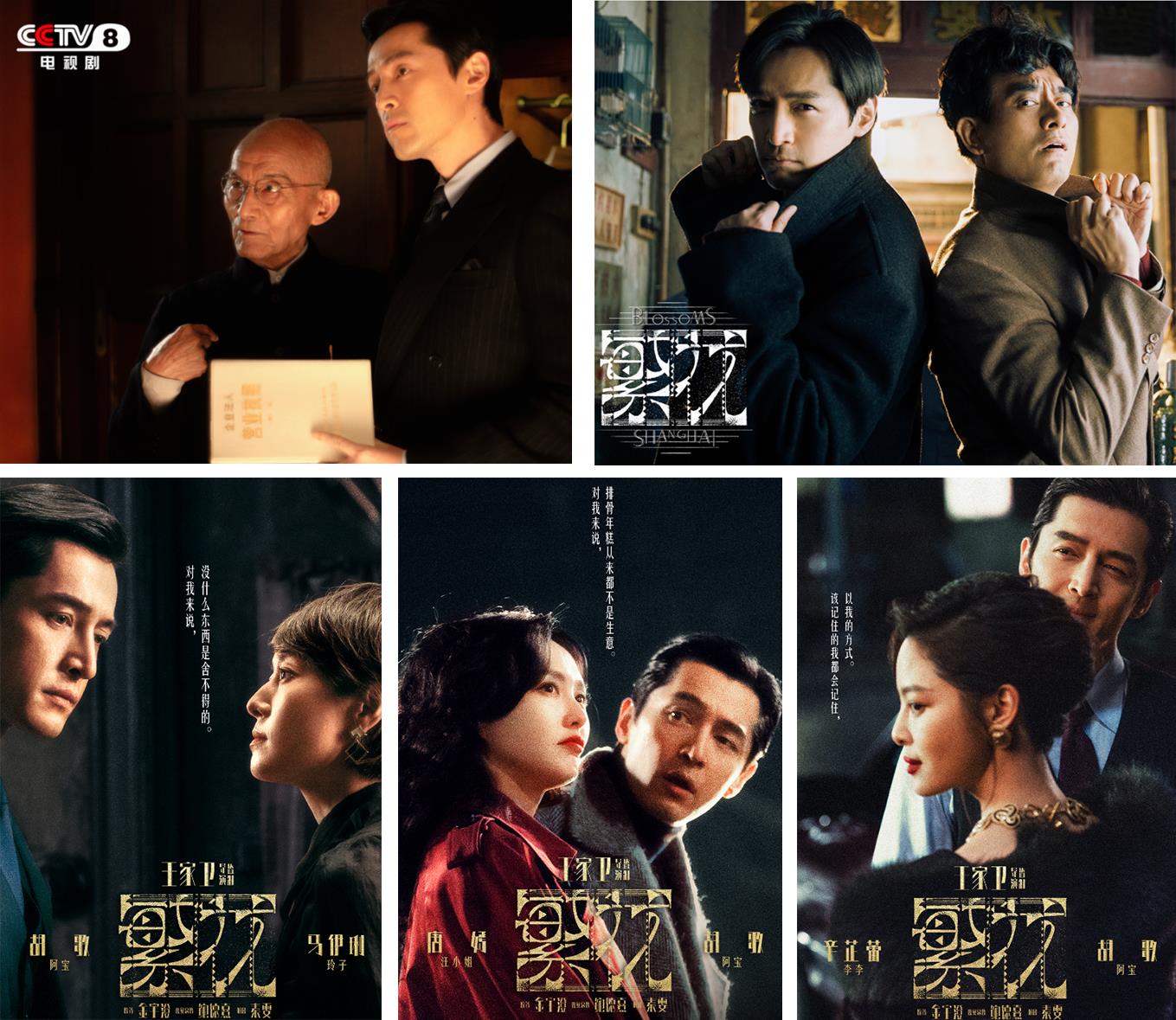
In a sense, Po has both a legendary experience and a legendary personality. Although he is not a superhero born out of the blue, nor a moral model with no desires and desires, he is a major protagonist with an accent and halo. .
This aura, and the interaction with all kinds of Mr. Zhang, Mr. Wang, Little K, Ya San, clerks, waiters, vendors, and street gangsters on the beach, seem to bring a certain kind of human brilliance.
Shanghai accent
Both the outside and the inside are important, with emotion and atmosphere.
"Flowers" not only tells a story about joys and sorrows, and the ups and downs of life around a man and three women, but it also embodies a strong "accent" culture of Shanghai.
Nanjing Road, Huanghe Road, Jinxian Road, Peace Hotel, Zhizhen Garden, Night Tokyo...
From the working environment and living space to the urban landscape and living customs, everything in the play has "history", emotions, and a refined and sophisticated tone.
Everyday, practical but not make-shift, not deceptive, bustling and noisy, still eating well and dressing well, the audience can feel the unique atmosphere and taste of Shanghai.
This drama not only has the "tone" of a "Shanghai-style" drama, but also embodies the charm of a unique regional culture.
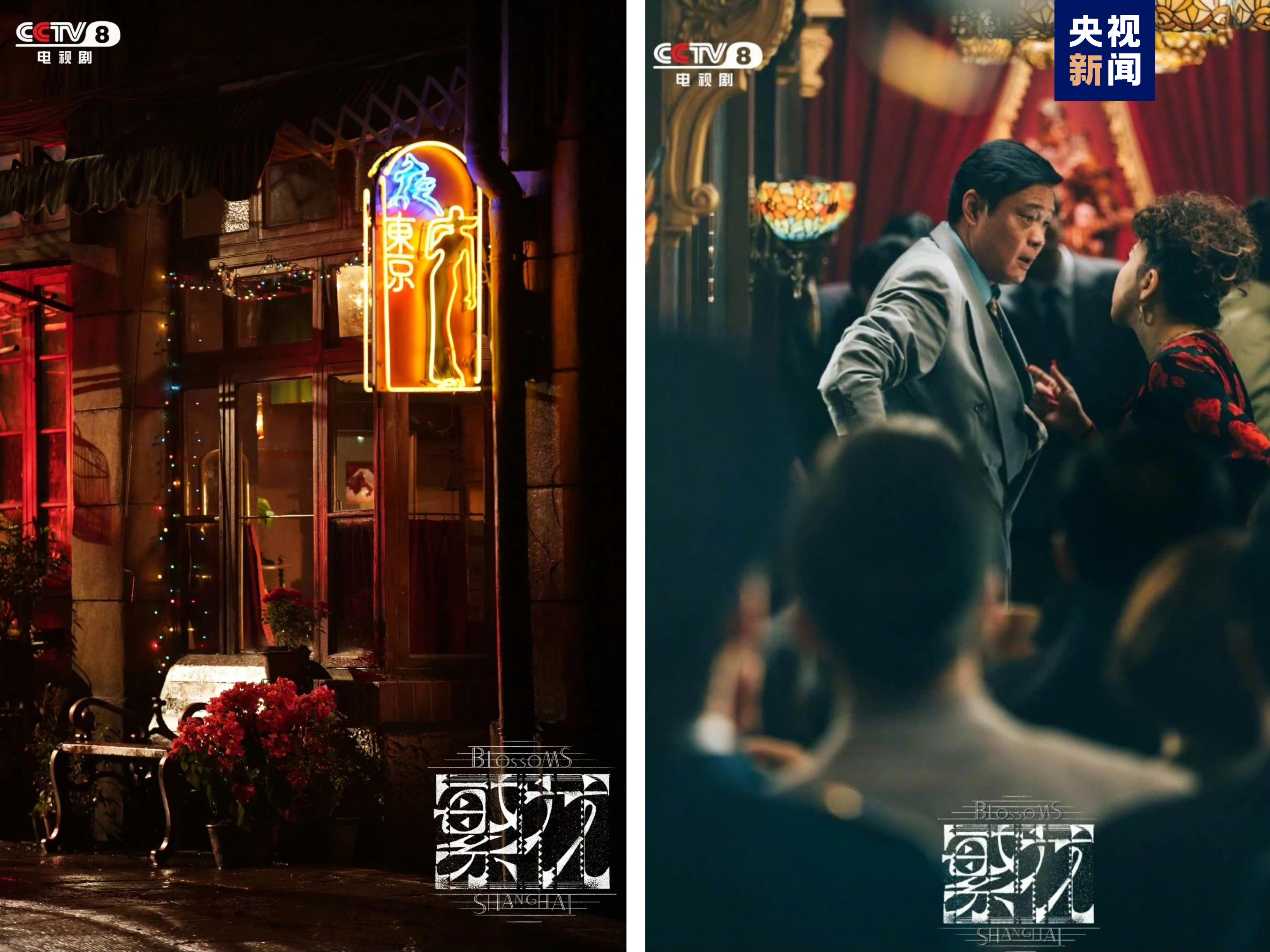
tone of the times
Wide sea diving, sky high the birds to fly
Whether it is the character's temperament, Shanghai-style style, or Wong Kar-wai's brand, the most important thing is that they jointly embody a "tone of the times."
The core story of the TV series took place in Shanghai from 1992 to 1994, which was the time when China's market economic reform was undergoing great changes.
Just like a song often used in the play, "I am a little little bird, I want to fly, but I can't fly high." It has almost become a portrayal of everyone's mentality of pursuing dreams in that era.
Challenges and opportunities, changes and struggles are changing people and society with each passing day.
On the Huanghe Road, which is only 755 meters long, the various characters present the tone of the times of social change and self-worth reshaping, reflecting the turbulence of the great era.
This tone of the times also gives the audience a sense of nostalgia and commemoration, where things and people have changed and time has passed.
"Goodbye in the Jianghu" and "Goodbye in the Times", accompanied by the song "Looking Back Again" that appears many times in the play, jointly create an aesthetic experience of the past being over and a mixture of sadness and joy.
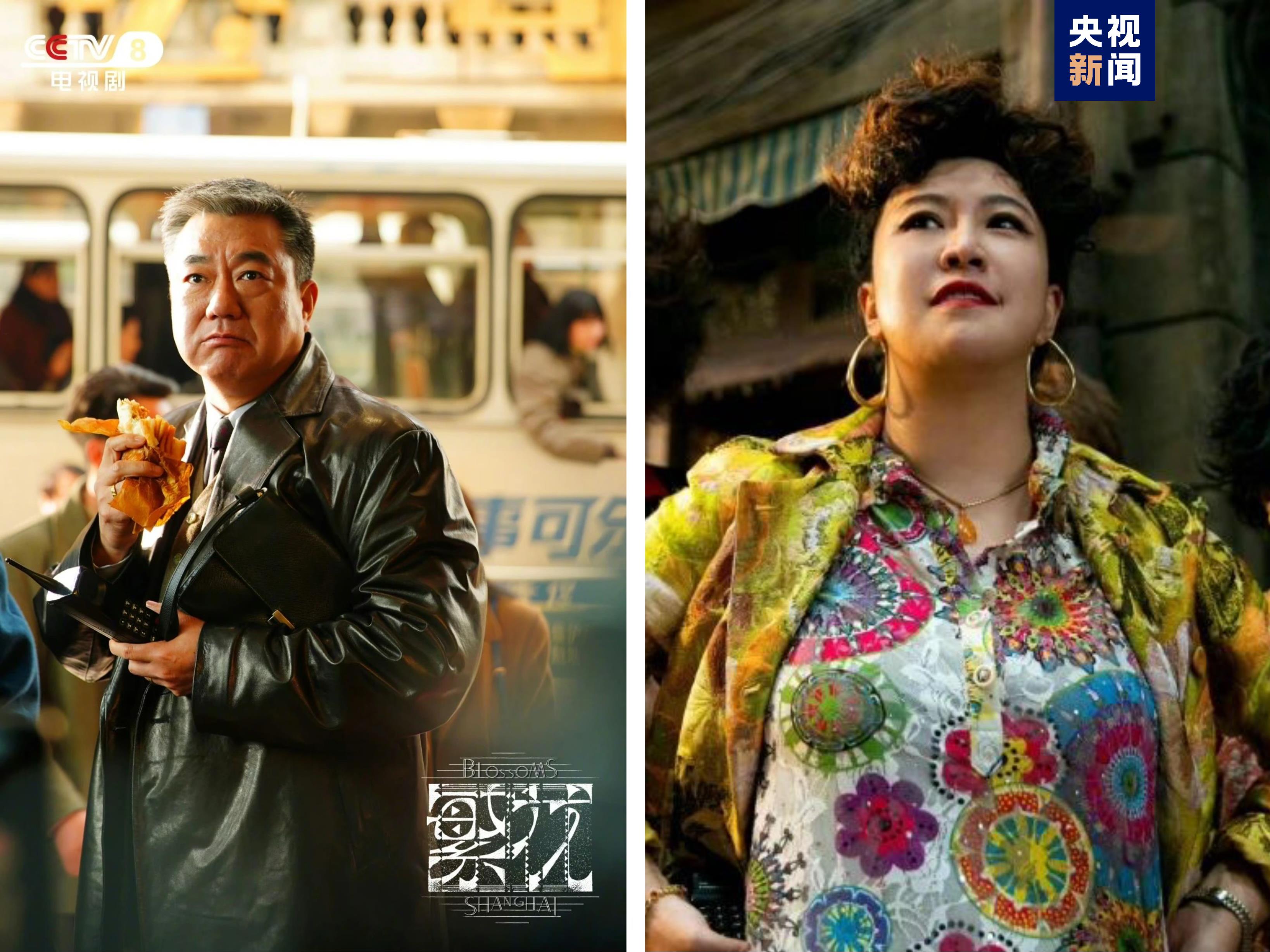
The "drama" has an accent, which makes this work significantly "difference" from the narrative method, audio-visual method, and aesthetic pursuit of traditional TV dramas. For the audience, this difference may be a sense of strangeness.
This tone has advantages and disadvantages. Why not have more distinctive accents - highlighting the spirit of the characters while telling stories, embodying the spirit of the times while writing about characters, and embodying an aesthetic spirit while reflecting the times.
